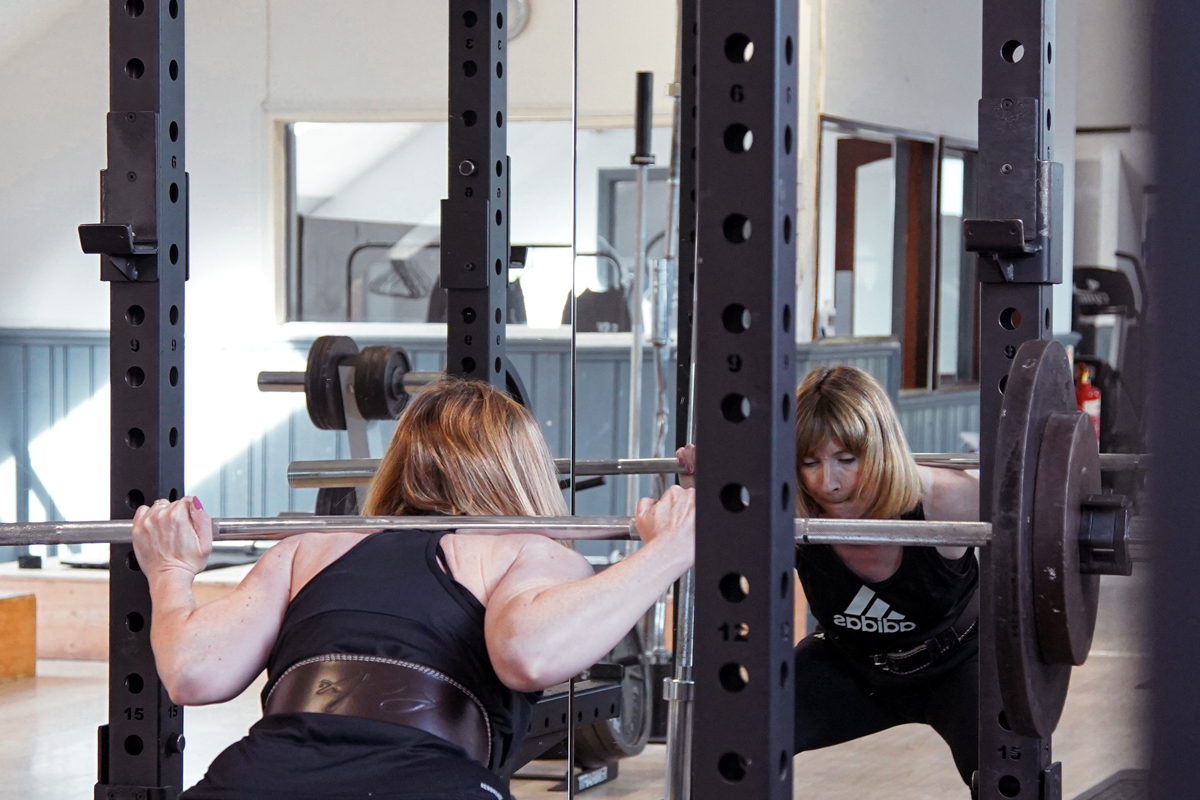
All of our barbell exercises are selected to maximise results for clients – and the squat is no different. When it comes to building strength (an increased production of force against an external resistance) we need to consider which exercise will optimally achieve the following criteria.
1
Incorporate the largest amount of muscle mass
The more bent over angle of your back in a low bar squat is designed to put more of a load on the posterior chain (in this instance the hamstrings and glutes). Therefore, we can utilise a larger amount of muscle mass to contribute to the movement. In a high bar squat position you have more of a vertical, upright back which reduces how much your posterior chain can contribute to the lift.
2
Have the longest effective range of motion
Squatting to a level just below parallel enables us to maintain an effective range of motion. Effective being the key word here – a squat that is taken too deep requires the low back to relax in order to permit this depth. Therefore going against our first criteria, to enable the largest amount of muscle mass to be involved.
3
Enable us to lift the most weight
In the low bar squat the barbell is positioned over the middle of the foot, this enables you to lift larger weights as more muscles are being recruited. With the barbell over the middle of the foot, you can exert a force on the barbell in a straight vertical line upwards directly against gravity. Since the force of gravity acting on the bar is always straight down in a vertical line, the most efficient way to oppose this force is by acting on it vertically as well. If the bar is over the front of the foot as is often the case in a high bar or front squat, extra effort is spent keeping the barbell in balance and therefore is not efficiently spent moving the bar upwards against gravity.

